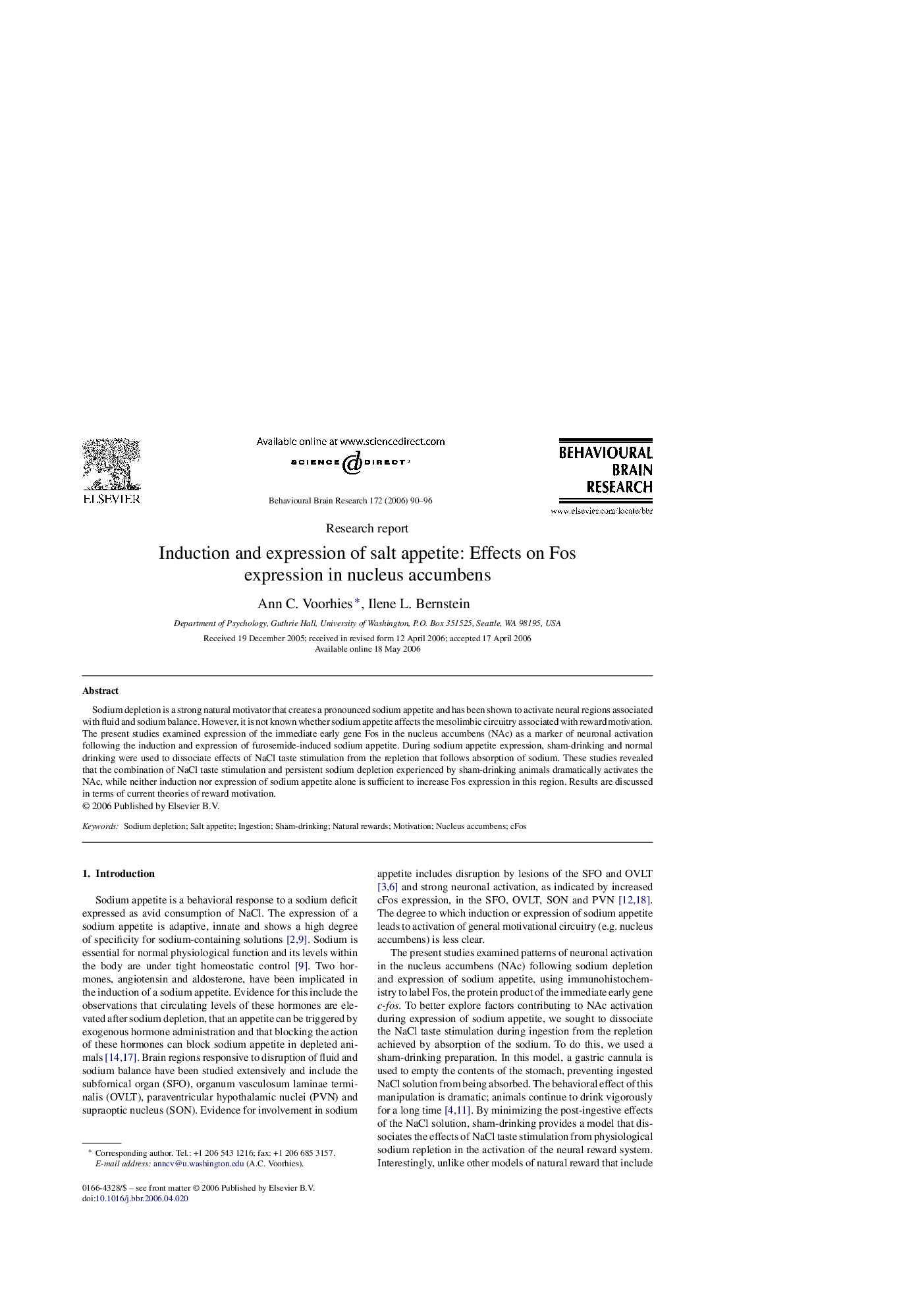| Article ID | Journal | Published Year | Pages | File Type |
|---|---|---|---|---|
| 4315960 | Behavioural Brain Research | 2006 | 7 Pages |
Sodium depletion is a strong natural motivator that creates a pronounced sodium appetite and has been shown to activate neural regions associated with fluid and sodium balance. However, it is not known whether sodium appetite affects the mesolimbic circuitry associated with reward motivation. The present studies examined expression of the immediate early gene Fos in the nucleus accumbens (NAc) as a marker of neuronal activation following the induction and expression of furosemide-induced sodium appetite. During sodium appetite expression, sham-drinking and normal drinking were used to dissociate effects of NaCl taste stimulation from the repletion that follows absorption of sodium. These studies revealed that the combination of NaCl taste stimulation and persistent sodium depletion experienced by sham-drinking animals dramatically activates the NAc, while neither induction nor expression of sodium appetite alone is sufficient to increase Fos expression in this region. Results are discussed in terms of current theories of reward motivation.
